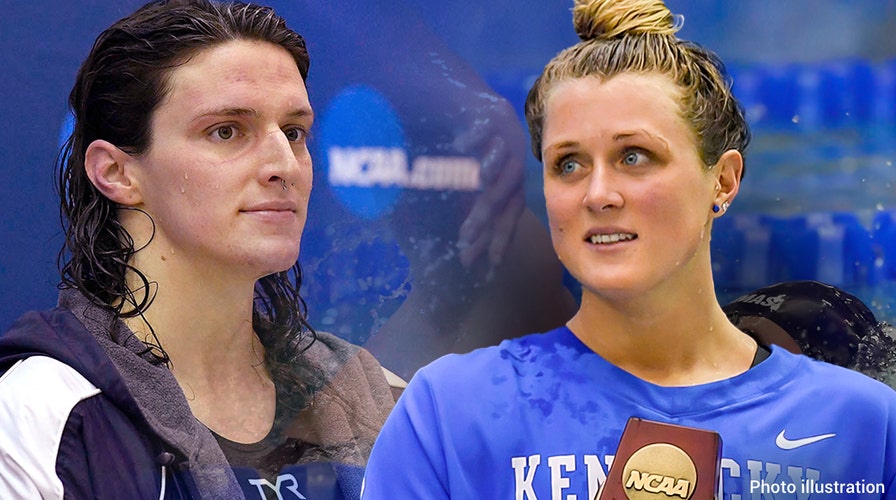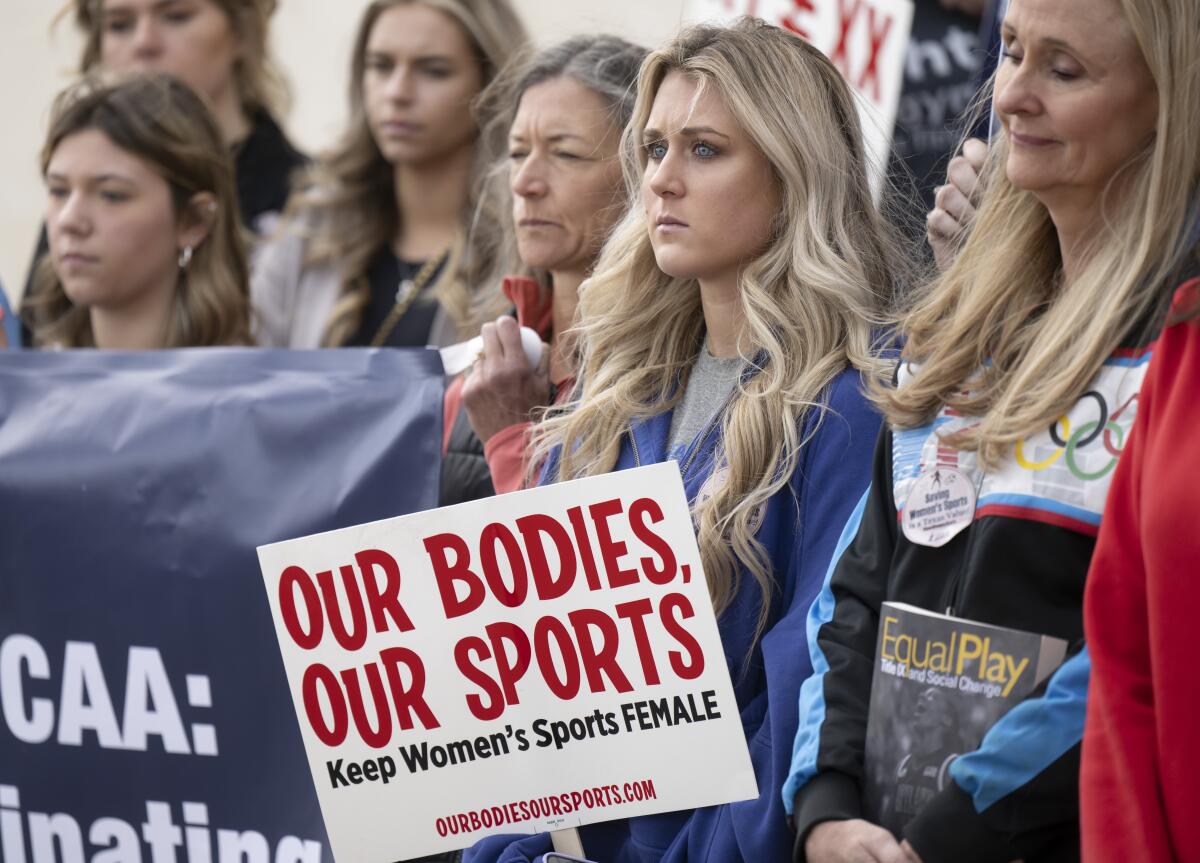Breaking News: NCAA Officially Strips Lia Thomas of Her Title and All Medals, Riley Gaines to Get It All Back Thanks to Outside Forces
In a historic and controversial decision that has set the sports world ablaze, the NCAA has officially stripped Lia Thomas of her title and all medals won during her time as a swimmer for the University of Pennsylvania.
The decision comes after mounting pressure from athletes, lawmakers, and advocacy groups. The move has sparked heated debates about fairness in sports and the inclusion of transgender athletes in competitive events.

In a twist that has stunned many, Riley Gaines, a former NCAA swimmer, is set to be awarded Thomas’s titles and medals, thanks to a combination of legal and public pressure from outside forces.
The ruling by the NCAA to revoke Lia Thomas’s titles is unprecedented and marks a significant turning point in the ongoing debate surrounding transgender athletes competing in women’s sports.
Thomas, who made history as the first openly transgender woman to win an NCAA Division I championship in women’s swimming, had become a focal point for those advocating for fairness and equality in sports.
However, her victories were met with backlash from some corners, arguing that her participation in women’s events gave her an unfair advantage over cisgender female athletes.
The Decision: What Led to the NCAA’s Ruling
The NCAA’s decision to strip Lia Thomas of her medals came after extensive investigations into her eligibility to compete in women’s events, coupled with the growing controversy surrounding the fairness of her participation in female-only competitions.
According to the NCAA, the ruling was based on a series of factors related to the guidelines set forth for transgender athletes. These guidelines, which have been under constant revision, include hormone levels and the impact they may have on performance in specific sports.
The ruling was the result of intense lobbying by various groups and athletes who questioned the fairness of having transgender women compete in categories designated for women.
These athletes argued that, despite the NCAA’s rules regarding hormone levels, there was still a significant biological advantage that transgender women could have, particularly in sports like swimming, where physical strength and endurance are crucial.
Riley Gaines, a prominent swimmer who competed for the University of Kentucky, has been one of the most vocal critics of Thomas’s participation in women’s swimming events.
Gaines has been an outspoken advocate for preserving fair competition for female athletes and has spoken out against what she perceived as an unfair advantage Thomas gained by transitioning later in life and continuing to compete at an elite level.

Riley Gaines: The Athlete Who Will Benefit from the Ruling
The decision to strip Thomas of her titles has led to a significant shift in the landscape of women’s sports, with many now turning their attention to Riley Gaines. Gaines, who has been vocal about her own experiences competing against Thomas, is set to be awarded the titles and medals that Thomas won during her time at the University of Pennsylvania.
This decision has been praised by Gaines’s supporters, who argue that she and other cisgender female athletes have been unfairly overshadowed by the presence of transgender athletes in female competitions.
In response to the ruling, Riley Gaines took to social media to express her gratitude and to reaffirm her commitment to fighting for fair competition in women’s sports. “I’m honored to have the opportunity to reclaim what should have been mine all along,” Gaines said in her post.
“This victory is not just for me—it’s for every female athlete who has worked so hard to get where they are and has had to compete against unfair advantages. I will continue to fight for the fairness of women’s sports, and I will not stop until every female athlete has the opportunity to compete on a level playing field.”
The Role of Outside Forces in the Decision
The shift in the NCAA’s stance and the ruling to strip Thomas of her titles did not come without significant external pressure. Legal challenges, public advocacy campaigns, and intense media coverage have played a crucial role in bringing this issue to the forefront.

Several political leaders and advocacy groups have pushed for policies that would ensure fair competition in women’s sports, particularly in light of the growing participation of transgender athletes.
Gaines has been supported by organizations that advocate for the preservation of women’s sports and have argued that the inclusion of transgender women in female competitions undermines the achievements of cisgender female athletes. These groups have praised the NCAA’s decision as a victory for fairness and inclusivity in sports.
The Bigger Debate: Fairness in Women’s Sports
While the NCAA’s decision to strip Thomas of her titles has been celebrated by many, it has also ignited further controversy. Supporters of transgender rights argue that the ruling is discriminatory and undermines the progress made in advocating for transgender inclusion in all areas of society, including sports. They argue that Thomas should be allowed to compete based on her gender identity and that she worked hard to earn her victories.
On the other hand, those in favor of the ruling believe that it is a necessary step to preserve the integrity of women’s sports, ensuring that female athletes are not at a disadvantage due to inherent physical differences between transgender women and cisgender women.
The debate surrounding the inclusion of transgender athletes in women’s sports is far from over, and the NCAA’s decision has only deepened the divide. The issue is likely to continue to be a major point of contention as more cases emerge and as the conversation surrounding equality and fairness evolves.

Conclusion: A Turning Point in the Transgender Athlete Debate
The NCAA’s decision to strip Lia Thomas of her titles and the subsequent awarding of those titles to Riley Gaines marks a pivotal moment in the debate over transgender athletes in women’s sports. The ruling, which came after years of controversy and legal challenges, is a significant step in the ongoing discussion about fairness, equality, and inclusion in sports.
While Riley Gaines’s supporters have celebrated the decision as a win for women’s sports, the decision is likely to further fuel the contentious debate surrounding transgender athletes’ rights and their place in competitive sports.
As the debate continues to unfold, the ruling serves as a reminder of the complexities involved in balancing inclusion with fairness in the world of sports. The decisions made today will have long-term implications for the future of competitive athletics and will likely continue to shape the landscape of sports for years to come.


